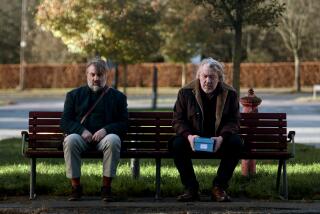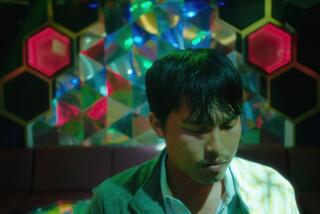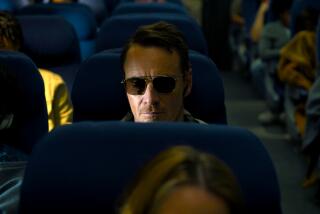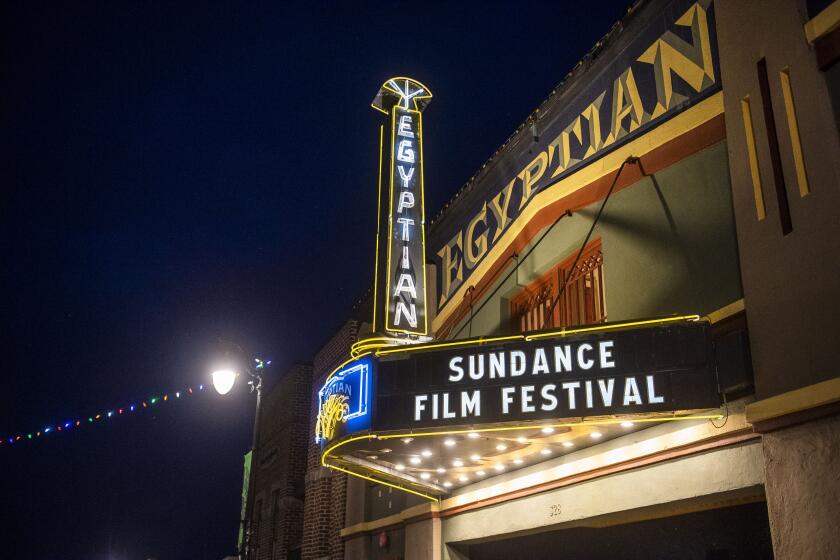Review: ‘The Assassin’ kills it with emotional resonance and martial arts moves
Taiwanese filmmaker Hou Hsiao-hsien is considered one of the world’s greatest among the cognoscenti of the international festival circuit, though he remains largely unknown even to art-house audiences in the United States. His new film, “The Assassin,” his first feature in eight years, should go some way to changing that.
Combining Hou’s patient, observant style with a historical martial arts tale, the film is a fascinating hybrid of craft, genre and story. Beautiful to look at and with deeply felt emotions, the film has a meditative aura punctured by sharp bouts of fighting.
SIGN UP for the free Indie Focus movies newsletter >>
“The Assassin” won the director prize for Hou when it premiered this year at the Cannes Film Festival and has been selected as Taiwan’s submission for the foreign-language film Oscar. Set in 9th century China, the film follows a young woman named Nie Yinniang (Shu Qi), who is taken from her family and trained as an assassin by a nun, Jiaxin (Sheu Fang-yi). Yinniang is sent back to her home province with an order to kill the governor, Tian Ji’an (Chang Chen), to whom she was once engaged. Within the film’s delicate emotional dynamics, a slight gesture causing a rustle of fabric can be felt as deeply as a fist or a blade.
Yinniang spends much of her time watching Tian Ji’an’s court while weighing her decision of what is best for herself, for the province and even for her target. In the lead role, Shu is a powerful presence, able to convey inner conflict and outer strength, which makes the character a fascinating enigma. This makes the film as much about waiting and observing as it is about fighting. “The Assassin” is an action film in which much of the intensity and conflict comes from the decision of whether to take action.
Though Hou has tackled period dramas before, notably in his 1998 film “Flowers of Shanghai,” he is also known for the urban melancholy of 2001’s “Millennium Mambo” and 1996’s “Goodbye South Goodbye.” His latest film combines those impulses by creating something with a sense of period detail and a vivid emotional richness.
The difficulty of Yinniang’s decision, observing a life that might have been hers while contemplating whether to complete her mission, creates a pungently bittersweet sadness and air of regret that can be felt even in the fight scenes, giving them the emotional resonance of a stylized dance.
With costumes and set design by Hwarng Wern-Ying and cinematography by Hou’s longtime director of photography Mark Lee Ping Bing, the film has a fine, filigreed beauty. It’s like looking inside a jewel box. Many sets were built not on soundstages but out-of-doors so that natural light could be used. The stunning landscapes, most in northeast China, are rough and rugged, but with an undercurrent of etched delicacy. A climactic confrontation between Yinniang and Jiaxin occurs on the edge of a cliff as a fog rolls in and envelops them. Much like “The Assassin” overall, the scene’s combination of majesty and mystery seems nothing short of magic.
Twitter: @IndieFocus
------------
‘The Assassin’
MPAA rating: None.
Running time: 1 hour, 44 minutes
Playing: Laemmle’s Playhouse 7, Pasadena; Laemmle’s Ahrya Fine Arts, Beverly Hills
More to Read
Only good movies
Get the Indie Focus newsletter, Mark Olsen's weekly guide to the world of cinema.
You may occasionally receive promotional content from the Los Angeles Times.







